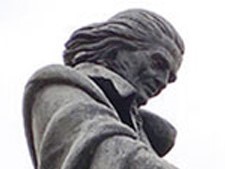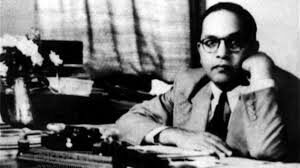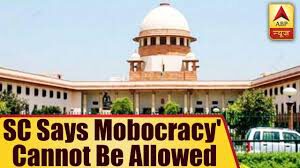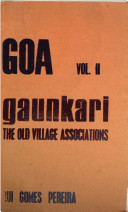‘Kator re bhaji’, meaning ‘Be bold; go ahead and do it!’, is not just another idiomatic expression in Konkani; it went down in history after a Goan, Caetano Vitorino de Faria of Colvale, Bardez, was heard prodding his son, Abbot José Custódio, who was with his nerves on edge at the pulpit in the royal chapel in Lisbon. Much later, Faria Jr., who studied the power of suggestion, came to be regarded as the ‘Father of Hypnotism’.

Meanwhile, they say that Faria Sr. and a few others had plotted to oust the Portuguese and establish a republic in Goa, in 1787. Had they succeeded, Goa would probably have seen the establishment of a republican regime two years before the French republic came about with its motto Liberté, Egalité, Fraternité…. (Liberty, Equality, Fraternity).
Today is the 26th of January. How does the common man regard this day? As a holiday, of course! Others look at it as the Republic Day of India, even while unsure of what a republic really means! So let us see what it is, and how it is different from a democracy pure and simple….

A democracy is people’s rule, or – in Abraham Lincoln’s memorable words – “a government of the people, by the people and for the people”. A republic is a “rule by elected officials” (as opposed to hereditary rulers).
Well, all republics are democracies, but not all democracies are republics. For example, a ‘direct’ or ‘pure’ democracy (that in which the people vote directly on every issue) is not a republic; whereas a ‘representative’ democracy (one in which the people elect representatives to study and vote on issues on their behalf) is another name for a republic.
Where does India fit in all this? India gained independence from Britain on 15th August 1947; but few may know that the King of England continued to be at the helm, thanks to the Government of India Act of 1935 that remained in force for some time to come! Why? Simply because Free India still did not have a constitution! So, on 28th August 1947, a committee was appointed, with Dr Ambedkar as chairman, to draft a constitution. This became effective from the 26th day of January, 1950.

Thus, whereas Independence Day celebrates India’s freedom from British rule, Republic Day celebrates India’s constitution. Interestingly, 26th January was chosen as the D-day because, twenty years earlier, on that very day, the freedom movement spearheaded by the Indian National Congress had declared Purna Swaraj (complete freedom) as its objective. The 26th of January was dedicated to fully honouring that freedom, with the rule of law.

The Preamble of the Indian Constitution states that India is, among other things, a “democratic republic”. Thank God, there are internal checks and balances that prevent it from turning into a dictatorship. However, some would have it that India is indeed a democracy, a plutocracy, a kleptocracy and a mobocracy, all rolled into one! If that is so, who is responsible for this state of affairs? You and I! And thanks to its economic and technological progress, India today is a Netocracy as well. This is the great new reality. Remember, social networking is said to have clinched Obama’s recent victory; similar political trends are noticeable in the Indian context as well.
In 1950, India’s many monarchs gave in to the supremacy of the people. Democracy shaped in the form of a republic became the spirit of India. But the moot question is: Where do we, the people, stand today? Have we really grown and blossomed as a republic?

The republican system is not new to India. Our villages with their ganvkari were indeed little republics, each of them self-sufficient in goods and services. Under the Portuguese they came to be preserved as Comunidades, whereas in British India it is unfortunate that the system vanished into thin air.
Where do the precious values of those institutions stand today, in our fast-moving world steeped in materialism and consumerism? Today, India will flaunt her might at the Parade in New Delhi; but has the common man in India any might to parade? Can we in all honesty celebrate the sovereignty of the people of India? Aren’t the people usually taken for granted?
While we thank the Almighty for the positives that the country has seen, including its proud position in the comity of nations; it is also important to look at the abysmal lows that we have touched: the newspapers are brimming with news that makes us hang our heads in shame…. So, really, the speechifying must stop – I must stop – and we must ensure that we work concretely towards refreshing changes in the country. And to see that the Republic of India truly turns around, it is for you to bell the cat; it is for you, the younger citizens, to do your bit of the kator re bhaji!
(Republic Day speech, 2013, Prerana, Vol. XV, 2012-17)
Senhor, I relished another account, penned by you, of the Abbe’s papa goading him on to ‘kator re bhaji’ I think it was about his jaw-dropping lineage, where abbe Faria would cheekily introduce himself as the son of a priest and a nun!
Hi Oscar: Soul stirring!
We have an obligation to pray that God gives us not only the understanding of what is happening but how we might turn it around by how we vote, by speaking out about what is really happening.